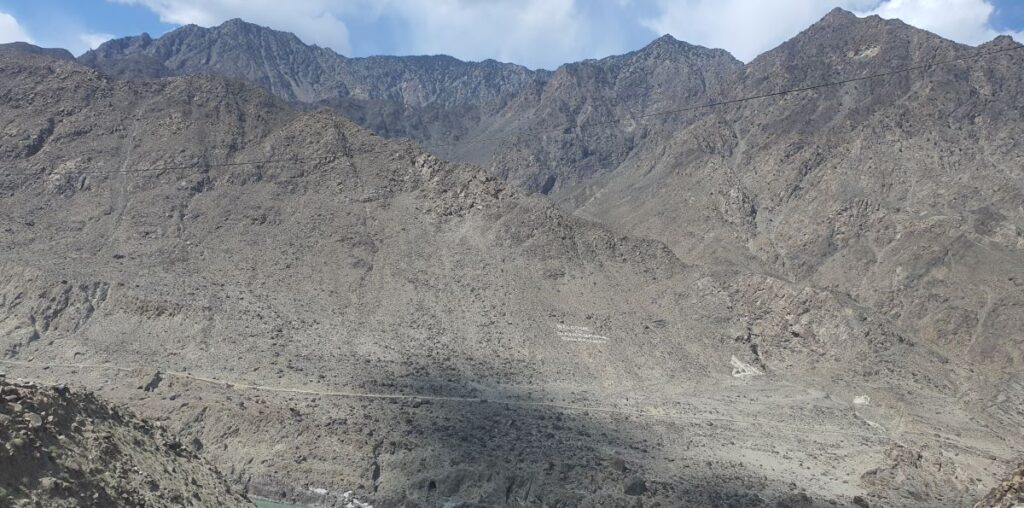Lord Buddha said, “Nothing is permanent.” This also applies to personal relationships as well as nation-to-nation relationships. Recently, there was a public spat between Pakistan‘s Deputy Prime Minister Ishaq Dar and the Chinese ambassador in Islamabad, Jiang Zaidong. Their argument over attacks on Chinese citizens in Pakistan has put the all-weather friendship between China and Pakistan under severe stress. Furthermore, it has raised doubts about the future of the China-Pakistan Economic Corridor (CPEC).
Signs of Diplomatic Strain
The incident occurred in the last week of October during a seminar in Islamabad that the Pakistan-China Institute organized. At the event, Deputy Prime Minister Dar went to great lengths to appease the Chinese envoy to Pakistan, Jiang Zaidong, who was also in attendance.
Dar declared that Pakistan was the only country to which China would send its nationals, even in the face of security concerns. Dar reportedly declared:
“The Chinese are very clear. No matter how lucrative an opportunity for investment is, if there is a security issue, they do not send Chinese personnel. Our country (Pakistan) is the only exception.”
Jiang immediately stood up and contradicted Dar. “Chinese citizens’ security is paramount for President Xi [Jinping],” he said. He also warned that the violence in Pakistan targeting Chinese nationals was causing Beijing to rethink its investments there under the Belt and Road Initiative (BRI). Moreover, he emphasized the need for Islamabad to take measures to prevent the recurrence of such attacks.

Islamabad did not, however, take the Chinese envoy’s riposte lying down. In an unprecedented formal response, a Pakistani Foreign Office spokesperson subsequently described the statement of the Chinese ambassador as “perplexing.” This spokesperson also described it as a marked departure from the longstanding diplomatic norms governing bilateral ties between the two countries.
Security Concerns
Beijing is upset about the death of seven Chinese nationals in Pakistan in suicide attacks since March this year. At least 23 Chinese nationals have been killed in Pakistan since 2018, after the launch of the CPEC in 2015.
However, the Pakistani people do not appear to be paying heed to the ire of the Chinese official. In early November, another incident occurred in Karachi’s Industrial Trading Estate area. A security guard opened fire at two Chinese nationals. He critically injured one, while the other sustained less severe injuries.
Within two days of the incident, Pakistan’s Interior Minister Mohsin Naqvi called on the Chinese ambassador Jiang Zaidong. Naqvi expressed regret for the Karachi incident and assured him that ensuring the safety of Chinese citizens was the Pakistani government’s top priority. Both then agreed to devise a joint strategy to prevent the recurrence of such incidents.
Baloch Protests Chinese Expansion
Ordinary Pakistani people are apprehensive over the exponential increase in the migration of Chinese nationals to Pakistan to work on BRI projects. They are also upset about the way the Chinese people treat Pakistanis as inferiors.
The majority of the attacks on Chinese nationals in Pakistan have taken place in Balochistan. Baloch people fear that by 2048, [Han] Chinese immigrants will outnumber their local population in the Pakistani province. They believe this could create a situation similar to that of the Uyghur people in Xinjiang and Mongolians in Southern Mongolia. Tibetans are also facing the same fate under Chinese colonial rule.

Under the Port Park City (PPC) model, Gwadar Port City in Balochistan will feature a China-funded industrial park. Amenities include hospitals, schools, a university, an airport, and a golf resort. These developments are part of a free trade zone with an estimated cost of $150 million USD. A gated “proxy colony” is also planned, set to house 500,000 Chinese workers coming to the area.
Ongoing work under the PPC model has already dislocated many natives and fishermen from the port city, leading to protests in the Balochistan province. Estimates suggest that approximately 10,000 Chinese nationals are living in Islamabad now and 35,000 in other parts of Pakistan.
Safe City Projects
Several “safe city projects” have been launched in Pakistan for the protection of Chinese nationals. CCTV cameras, scanners, and GPS have been installed. Chinese state-owned enterprises are the ones installing most of these technologies.
In 2016, the Islamabad Safety City Project, with a facial recognition and vehicle management system in place, was completed. Then, in 2019, a surveillance system was installed at the University of Balochistan, which often led to harassment of students.

The Lahore Safety Project includes facial recognition, integrated communication platforms, multiple tracking operations, and automated vehicle number plate recognition.
Through these safe city projects, China has introduced significant elements of Xinjiang’s digital security system into several Pakistani cities. These include Islamabad, Peshawar, Lahore, Quetta, Karachi, and Gwadar, according to an Observer Research Foundation (ORF) study.
This growing Chinese influence has increased anti-state sentiment among the people of Balochistan. Rampant exploitation of Balochistan’s resources through CPEC projects has marginalized the Baloch people economically. Promises of jobs have yet to materialize. The Baloch Liberation Army has blamed Beijing for exploitation and accused China and Pakistan of being “partners in crime.”
Exporting Surveillance
Additionally, the ORF study has found that, on average, about 89% of all contracts for BRI projects in different countries have gone to Chinese construction companies. Only 7.6% have gone to locals, and 3.7 percent to other foreign companies.
China has created markets for its IT and telecom technologies in countries like Pakistan, Tajikistan, and Kyrgyzstan. These developments carry significant political and geostrategic implications. Through these technologies, Beijing has tried to export surveillance, impose censorship, and gain access to sensitive information and data. Several private security establishments have been set up in these countries to protect Chinese BRI investments. Most of these are either run by serving or former personnel of the Ministry of Public Security of China.
RELATED:
Author: Professor Pema Gyalpo



